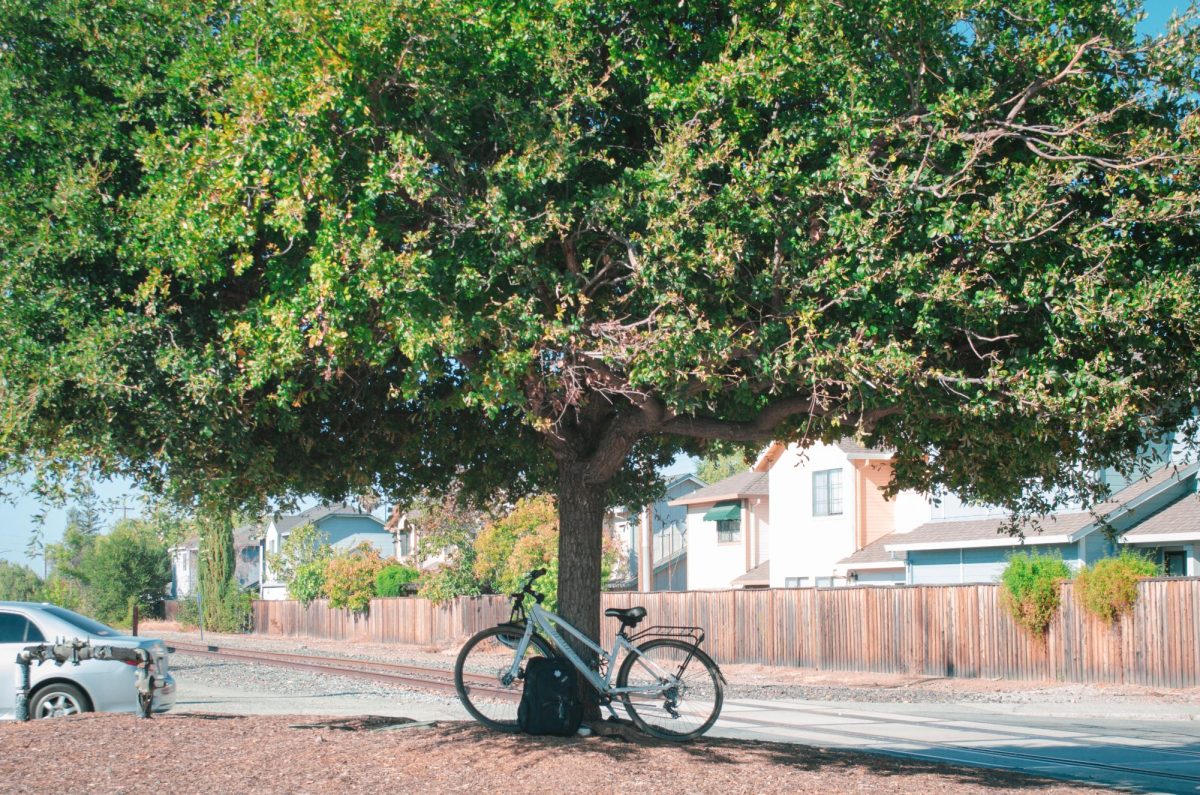 If we look past the objective reasons to take AP classes, we should be able to find the passion for these courses underneath
If we look past the objective reasons to take AP classes, we should be able to find the passion for these courses underneath
The competitive air that hangs over our school may make us oblivious to the fact that it is not common for the average high school student to take 5 AP classes in one year, get six hours of sleep over the course of two days or have the privilege of tutors for multiple subjects.For much of our high school careers, many of us spend a lot of time and energy into maintaining this rigorous schedule we call routine. The course selection fair on March 2 was a testimony to this mindset of many AP-geared MVHS students. History teacher Margaret Platt’s room was overwhelmed by a mob of prospective AP U.S. History students. After government teacher Ben Recktenwald finished a session on the AP Government course, students filed out of his room like they were on the red carpet through a massive throng of antsy juniors waiting for the next slot. Students crowded in for Physics Honors sessions—even though nothing was being presented.
The course selection fair on March 2 was a testimony to this mindset of many AP-geared MVHS students. History teacher Margaret Platt’s room was overwhelmed by a mob of prospective AP U.S. History students. After government teacher Ben Recktenwald finished a session on the AP Government course, students filed out of his room like they were on the red carpet through a massive throng of antsy juniors waiting for the next slot. Students crowded in for Physics Honors sessions—even though nothing was being presented.
Most teachers try to do their best to keep students from piling on too much work, but the students make the final decision on the number of AP classes they take.
And we’re in this feeding frenzy for what?
College applications are no doubt one of the foremost reasons in every AP student’s mind. AP classes are a way to show colleges how much one puts into their studies, but other than this, there seems to be little reason to take them. Of course, students consider their preferences when it comes to selecting their advanced courses—AP U.S. History versus American Literature Honors or AP Biology versus AP Chemistry, for instance—but these decisions between the lesser of two evils always seems to boil down to “I need more AP credits anyway.”
SAT preparatory centers only further foster this belief that certain colleges will only consider students with a minimum amount of AP or honors credits. UCLA and UC Berkeley are used as examples in college seminars that supposedly favor students who have taken over 20 credits of AP classes. Even though 20 is the average number of credits, many students and parents see that as a minimum they must reach. Simply put, some believe that every AP class that won’t kill a student is an AP class to take.
As students enter their junior and senior years, more class options are opened up them. If a student has the room, the student should take a class they will enjoy, regardless as to whether it is an AP or honors course. A student who is interested in literature should consider AP English and related classes at De Anza College, rather than put their efforts into a time-consuming math class. A student who wants to pursue art shouldn’t have to struggle in a Physics Honors class. What a student is interested in should be the focus of their attention, not spread out amongst other AP classes they know they will never follow up on in college. As for the undecided, those who are testing out different subjects—taking so many AP classes won’t help one get the full experience out of everything one is sampling.
It’s up to students to realize their passion for certain AP courses, and not get stuck on trying to fit the lobster to the shell.








